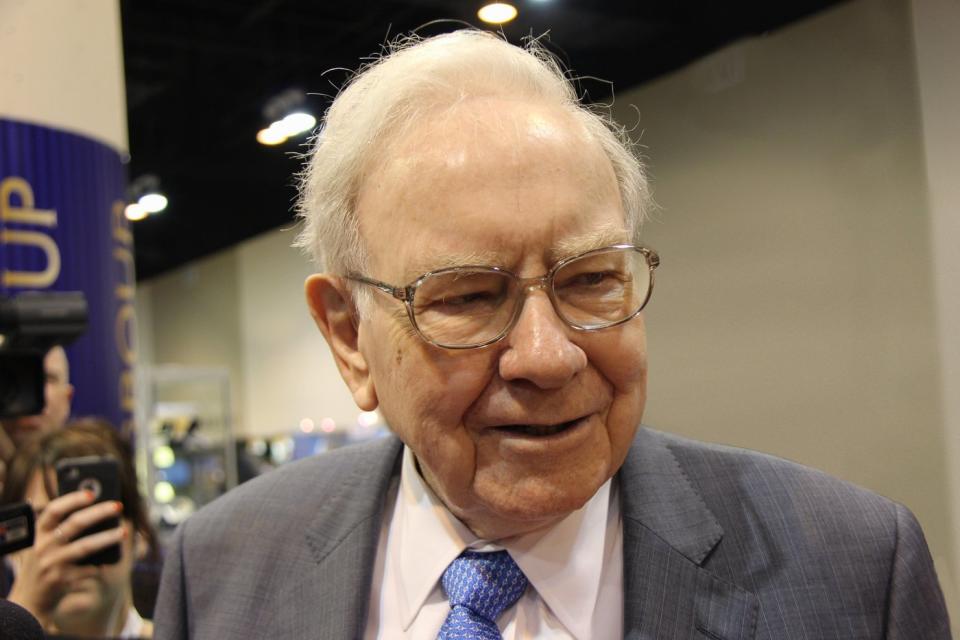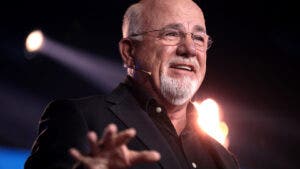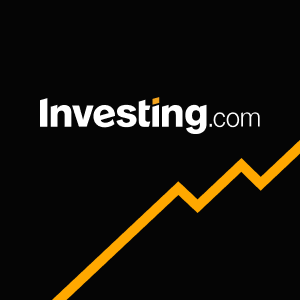1 Unstoppable Stock Set to Join Nvidia, Apple, Microsoft, Amazon, Alphabet, and Meta in the $1 Trillion Club

Warren Buffet was born in 1930, and he bought his first stock at age 11. By 1965, he was running his very own investment company called Berkshire Hathaway (NYSE: BRK.A)(NYSE: BRK.B), where he continues to cement his legacy as one of the world’s greatest investors.
Berkshire has become a conglomerate with several wholly owned companies under its umbrella, in addition to a portfolio of 47 publicly traded stocks and securities.
Berkshire’s largest holding is Apple, which became the world’s first $1 trillion company in 2018. Since then, Microsoft, Nvidia, Amazon, Alphabet, and Meta Platforms have also achieved that milestone.
Berkshire could soon be the first non-technology company in the U.S. to join them. Its stock has delivered an incredible compound annual return of 19.8% since 1965, carrying the company to a valuation of $922 billion. Here’s why it could surpass the $1 trillion milestone within the next year.

Buffett uses a simple investing strategy
Buffett is a value investor, which means he likes to buy great companies at an attractive price with the intention of holding on to them for the long term. Robust profitability, reliable growth, strong management teams, and shareholder-friendly programs like stock buybacks and dividend schemes are just some of the attributes he looks for when deciding to invest.
Time is Buffett’s greatest ally, because he relies on the magic of compounding to build his wealth for him. There is no better example than Berkshire’s investment in Coca-Cola. Berkshire spent $1.3 billion acquiring shares of the beverage giant between 1988 and 1994, and it still holds all of them today. That position is now worth a whopping $27.5 billion.
Aside from the enormous capital gain, Berkshire received $736 million in dividend payments from Coca-Cola in 2023, and it’s set to earn an even bigger amount this year!
Berkshire’s other long-term investments in American Express, Moody’s Corp, and Apple (to name a few) are similar success stories.
Berkshire invests in high-quality businesses
Berkshire Hathaway was originally a textiles company. It was on the cusp of failure before Buffett stepped in to buy it in 1965, but he quickly realized he couldn’t rescue its legacy business, so he converted it into a holding company for his various investments.
Over the years, Berkshire has acquired entire businesses like Duracell, GEICO Insurance, and Dairy Queen. In addition, the conglomerate’s portfolio of publicly traded stocks and securities is worth $302.4 billion. As I mentioned above, Apple is the largest holding in that portfolio.
Berkshire spent around $38 billion accumulating Apple shares since 2016, and despite selling more than half of its position this year, its remaining holding is still worth over $86 billion.
Bank of America and American Express are Berkshire’s second and third-largest holdings. It also holds sizable positions in energy companies Chevron and Occidental Petroleum, worth $17.8 billion and $14.9 billion, respectively.
Some of Berkshire’s smaller positions include Visa ($2.1 billion), Mastercard ($1.8 billion), and even Amazon ($1.6 billion). Berkshire first bought Amazon stock in 2019, and Buffett has expressed regret for not identifying the opportunity sooner. Even the world’s best investors make mistakes!
Berkshire’s financial growth supports the market-beating gains in its stock
Berkshire stock surged by 4,384,748% between 1965 and 2023, which translated to a compound annual return of 19.8%. That crushed the 31,223% gain (10.2% compounded annually) in the S&P 500 over the same period.
In dollar terms, an investment of just $1,000 in Berkshire stock in 1965 would have been worth a whopping $43.8 million by the end of 2023. The same investment in the S&P 500 would have grown to just $313,230. Berkshire continues to outperform the S&P 500, with a 19.1% gain this year versus just 12.7% for the index.
Berkshire generated $183.5 billion in revenue during the first half of 2024 (ended June 30), representing a 3.1% increase from the year-ago period. Over $76.3 billion came from sales and services from the conglomerate’s various business interests, and a further $43.4 billion came from insurance premiums. Its energy and utilities businesses also contributed $35.7 billion.
Berkshire also reported $43.3 billion in net earnings during the first half, so the conglomerate is also very profitable.
While Berkshire’s top-line growth has been fairly modest in 2024 so far, investors should focus on its long-term record. The conglomerate delivered $49.3 million in revenue during 1965, and according to Wall Street’s consensus estimate, that figure is on track to top $368.6 billion in 2024!
Berkshire could join the $1 trillion club within a year
Berkshire has a market cap of $922 billion as of this writing, so its stock only needs to gain a further 8.5% to push the conglomerate into the $1 trillion club. Given its 58-year track record of 19.8% annual growth — and its 19.1% gain in 2024 so far — it appears likely to happen within the next year. Mathematically speaking, it could cross the milestone within the next six months.
With that said, Berkshire is now sitting on a record $277 billion in cash thanks in part to its recent sales of Apple stock. Cash typically yields a lesser return than growth assets like stocks, so that could be a short-term headwind to reaching the $1 trillion club. On the plus side, it positions Berkshire perfectly to pounce on new opportunities that could fuel its long-term growth.
Furthermore, Berkshire is on track to earn record dividends from its top holdings this year, as Apple, Bank of America, American Express, and Coca-Cola have each increased their payouts so far. On top of that, the U.S. Federal Reserve could cut interest rates up to three times by the end of 2024, which will be a tailwind for Berkshire’s consumer, transport, and logistics businesses, because they are sensitive to swings in economic growth.
Finally, Buffett authorized the repurchased of $2.9 billion worth of Berkshire stock in the first half of 2024 as a way to return money to shareholders, which is a clear sign he still believes the conglomerate represents a good value. As my colleague Sean Williams points out, it takes Berkshire’s total repurchases to almost $78 billion in just the last six years, which is more than Buffett has deployed into any other stock.
Should you invest $1,000 in Berkshire Hathaway right now?
Before you buy stock in Berkshire Hathaway, consider this:
The Motley Fool Stock Advisor analyst team just identified what they believe are the 10 best stocks for investors to buy now… and Berkshire Hathaway wasn’t one of them. The 10 stocks that made the cut could produce monster returns in the coming years.
Consider when Nvidia made this list on April 15, 2005… if you invested $1,000 at the time of our recommendation, you’d have $641,864!*
Stock Advisor provides investors with an easy-to-follow blueprint for success, including guidance on building a portfolio, regular updates from analysts, and two new stock picks each month. The Stock Advisor service has more than quadrupled the return of S&P 500 since 2002*.
*Stock Advisor returns as of August 12, 2024
Randi Zuckerberg, a former director of market development and spokeswoman for Facebook and sister to Meta Platforms CEO Mark Zuckerberg, is a member of The Motley Fool’s board of directors. John Mackey, former CEO of Whole Foods Market, an Amazon subsidiary, is a member of The Motley Fool’s board of directors. Suzanne Frey, an executive at Alphabet, is a member of The Motley Fool’s board of directors. Bank of America is an advertising partner of The Ascent, a Motley Fool company. American Express is an advertising partner of The Ascent, a Motley Fool company. Anthony Di Pizio has no position in any of the stocks mentioned. The Motley Fool has positions in and recommends Alphabet, Amazon, Apple, Bank of America, Berkshire Hathaway, Chevron, Mastercard, Meta Platforms, Microsoft, Moody’s, Nvidia, and Visa. The Motley Fool recommends Occidental Petroleum and recommends the following options: long January 2025 $370 calls on Mastercard, long January 2026 $395 calls on Microsoft, short January 2025 $380 calls on Mastercard, and short January 2026 $405 calls on Microsoft. The Motley Fool has a disclosure policy.
1 Unstoppable Stock Set to Join Nvidia, Apple, Microsoft, Amazon, Alphabet, and Meta in the $1 Trillion Club was originally published by The Motley Fool








